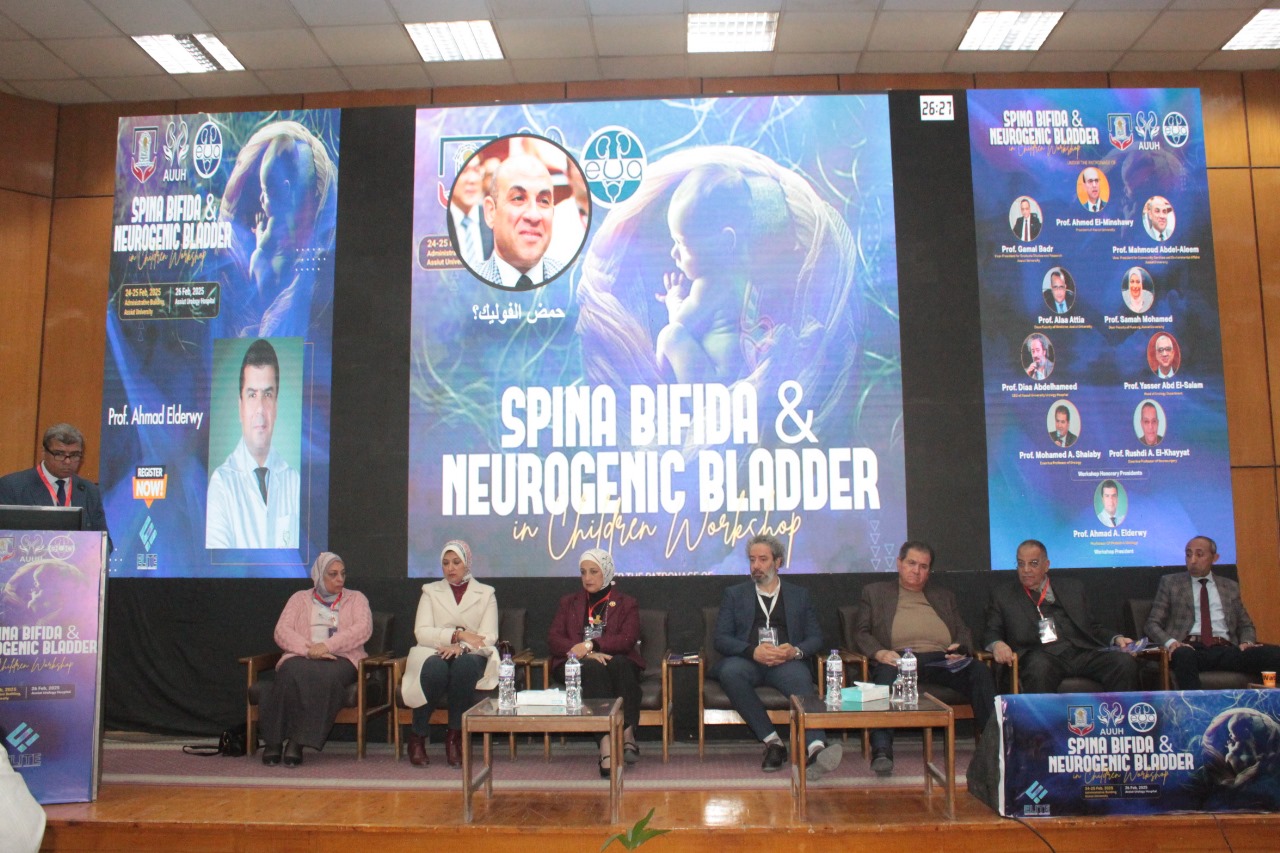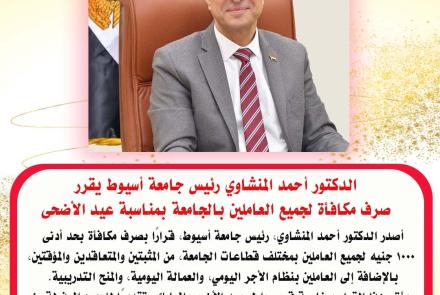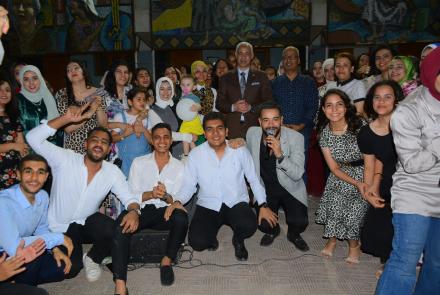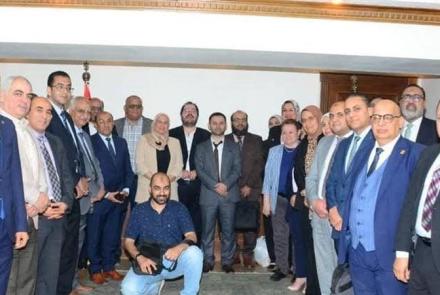President of Assiut University Emphasizes the Importance of Medical Specialties’ Integration in Treating Spina Bifida.
Dr. Ahmed El-Minshawy, President of Assiut University, commended the distinguished workshop organized by the University Hospital for Urology and Andrology, which was attended by a select group of international experts in pediatric urology. The event was held under the supervision of Dr. Alaa Attia, Dean of the Faculty of Medicine and Chairman of the University Hospitals’ Board of Directors.
The workshop was attended by Professor Rein Neijman, Professor of Pediatric Urology in the Netherlands, Carola McDonald, Director of the Spina Bifida Program at Amsterdam Children's Hospital, and Dr. Khaled Fouda, Professor of Pediatric Urology and Dean of the Faculty of Medicine at King Saud University in Saudi Arabia (online).
Dr. El-Minshawy stressed the importance of this scientific event, which included specialized sessions that addressed ways to improve health care for patients with spina bifida and neurogenic bladder, stressing the need for cooperation between different medical specialties to ensure integrated and comprehensive care for affected children.
He also pointed out the importance of raising awareness about the causes of congenital malformations and the need to take preventive measures to limit their spread, stressing the need to establish a multidisciplinary clinic to provide appropriate medical support to these patients, and praised the efforts exerted in organizing this workshop, which represented an important step in developing the medical services provided to spina bifida patients.
The workshop’s opening session was attended by Dr. Mahmoud Abdel Aleem, Vice President for Community Service and Environmental Development, Dr. Gamal Badr, Vice President for Postgraduate Studies and Research Affairs, Dr. Samah Abdullah, Dean of the Faculty of Nursing, Dr. Mohamed Shalaby and Dr. Rushdy El-Khayat, Honorary Chairmen, Vice Presidents and Heads of Departments of the Faculty of Medicine and doctors from various medical specialties related to spina bifida and neurogenic bladder.
The workshop was organized by Dr. Diaa Abdel Hamid, Director of the Urology Hospital, Dr. Yasser Abdel Salam, Head of the Department of Urology, and Dr. Ahmed Abdel Aziz Al-Darwi, Professor of Pediatric Urology and head of the workshop.
Dr. Mahmoud Abdel Aleem expressed his hope that the workshop will contribute to the exchange of experiences and scientific visions between the university urology professors and the doctors of the Ministry of Health and Health Insurance, to improve their medical skills in diagnosing and treating various diseases. He also emphasized the importance of the pregnant mother taking folic acid and being very careful when taking any medications to reduce the high incidence of spina bifida, pointing out the role of ultrasound in detecting and diagnosing fetal abnormalities and the need for continuous research to prevent and treat this disease.
Dr. Diaa Abdel Hamid explained that the workshop witnessed the participation of a delegation from the Netherlands, which included Professor Ryan Naimen, Professor of Pediatric Urology, and Ms. Carola McDonald, Director of the Spina Bifida Program at Amsterdam Children's Hospital, who discussed the importance of establishing spina bifida clinics in developing countries, proactive tract treatment for affected children, and colonic evacuation methods in children with spina bifida. Dr. Khalid Fouda, Professor of Pediatric Urology and Dean of the Faculty of Medicine at King Saud University in Saudi Arabia, delivered an online lecture titled "Long-term Outcomes of Spina Bifida"
Dr. Ahmed El-Darawi noted that the workshop included scientific and discussion sessions attended by a distinguished group of faculty members, representatives from the Egyptian Parliament and Senate for Assiut Governorate, officials from the Ministry of Health and health insurance sector, and civil society organizations such as Waad Foundation for the treatment and care of spina bifida patients.
The sessions addressed several topics, including the need to pay attention to people with special needs and give them the privileges they deserve, the role of modern technology in integrating patients into education until graduation and obtaining jobs, the state's efforts in this field, the role of nursing in caring for children with spina bifida, and the importance of community awareness to avoid the causes of this disease.


 Do you have any questions?
Do you have any questions? 





